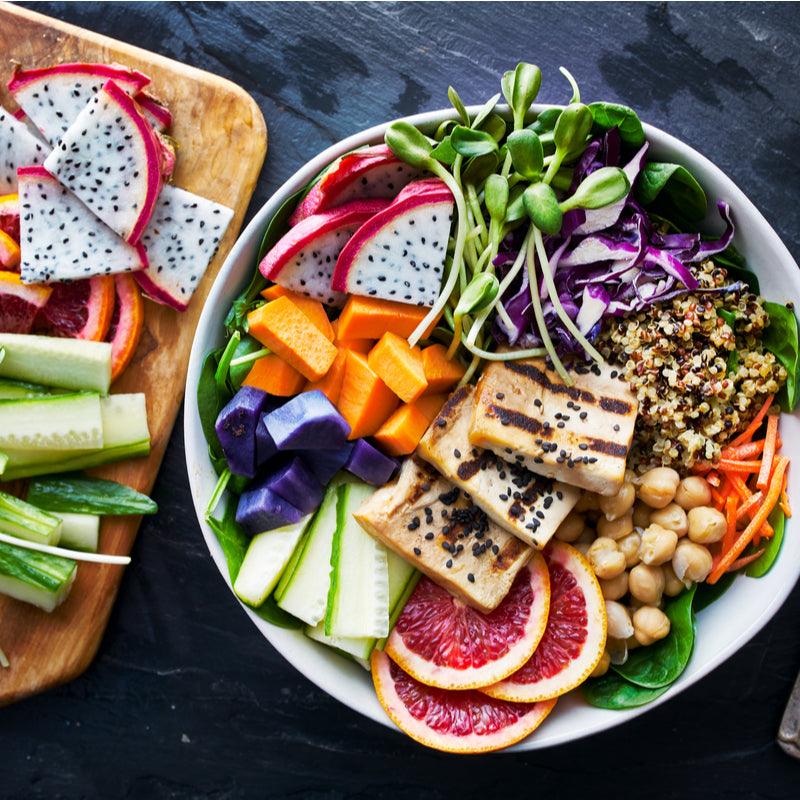
So, Is a Vegan Diet Healthy?
Like any other diet, when going vegan, you have to make sure that you are eating a well-rounded, nutrient-rich, and balanced set of meals throughout the day. Just because you have cut out animal products doesn't mean that your body will suddenly spring into good health! You may be surprised to find many storebought vegan snacks and options are highly-processed and can lead to unhealthy eating habits. It can sometimes be challenging to get certain nutrients into your diet while going plant-based, but it's not impossible. Making sure that you are getting all of your necessary macro and micronutrients is the first step to ensuring that your diet journey is healthy, no matter if it's vegan, vegetarian, or omnivorous! Some common nutrients that you may find yourself lacking on a vegan diet are:- B12
- Iron
- Calcium and Vitamin D
- Omega-3 Fatty Acids
Nutrient-Rich Plant Sources
To combat these easy to miss nutrients you should round out your diet with a variety of greeny leafy veggies, fortified soy products, whole grains, nuts, and seeds along with other fruits and vegetables. For those of you looking to find out more about including protein into a plant-based diet, check out our other blog, "Best Plant Protein Sources You May Not Have Thought Of."- Add nuts and seeds like walnuts, cashews, and flaxseed across your meals like in salads, overnight oats, and quinoa bowls to ensure you get plenty of Omega-3s.
- Need more iron? Foods like beans, lentils, whole grain products, and leafy green veggies can help you get adequate iron levels.
- Fortified products like juices and cereals can help you get the calcium you need, but they're also available in dark green veggies like kale, broccoli, and collard greens.
- Most well-known sources of B12 are not vegan. It's essential to take in fortified foods or milk that contain B12 alongside supplements if necessary to make sure that you get the right amount of nutrition in your vegan diet.



